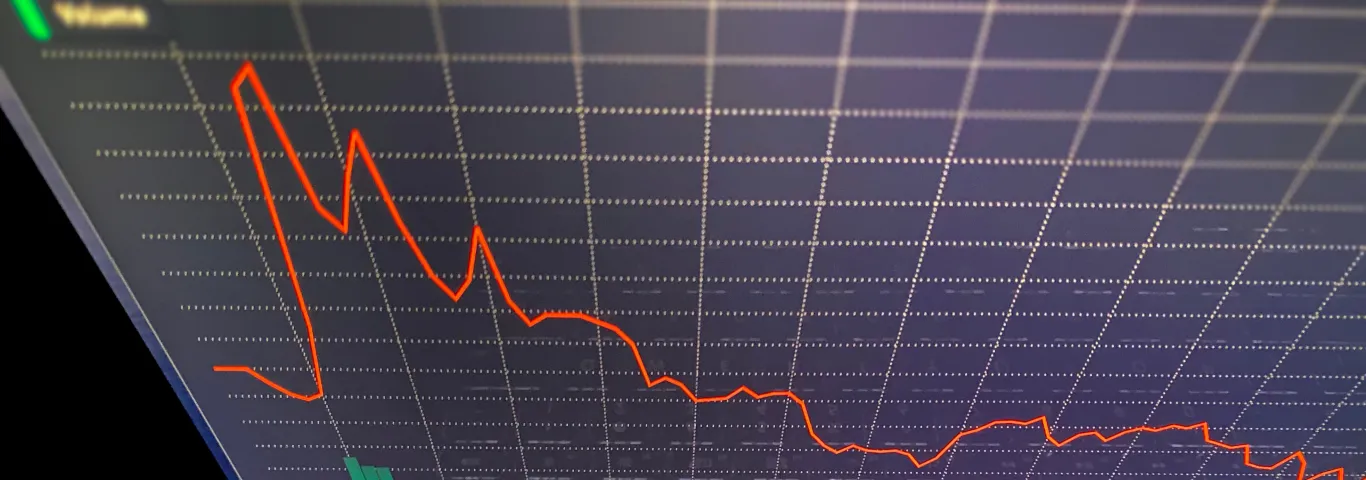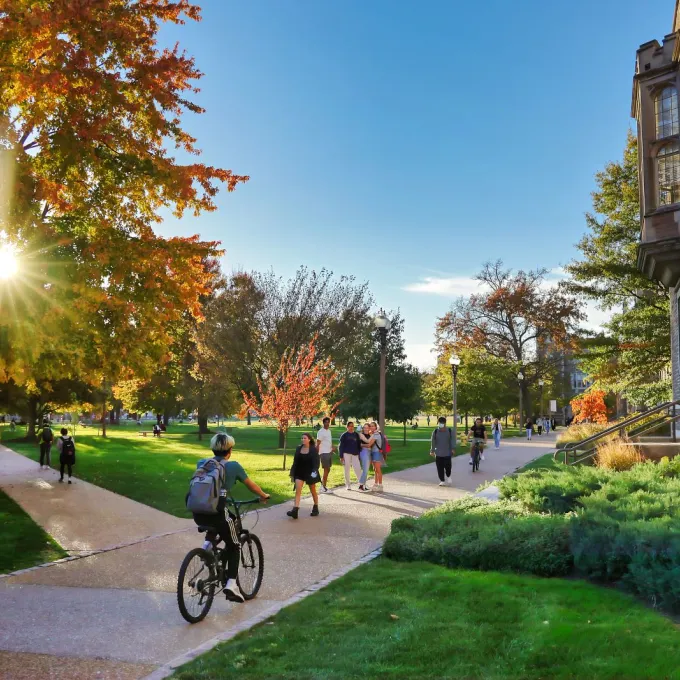Statistics and Data Science Department at WashU
Statistics — as a core discipline focusing on data-driven discovery, understanding, and decision-making — is rapidly evolving and advancing in the data science era. The new Department of Statistics and Data Science (SDS) strives to be a world-class department with outstanding scholars who will transform the university's intellectual community not only through their own activities and achievements but also through synergistic collaborations with existing faculty and departments across Arts & Sciences, the McKelvey School of Engineering, and all of the other schools at the university.
The SDS department offers two master's degree programs in statistics and one doctoral degree in statistics. Our masterʼs and PhD graduates regularly secure competitive positions at universities, at government institutions, and as statisticians and data scientists in industry. One of the most attractive features of our program is the friendly and supportive atmosphere that develops among our graduate students.
Master of Arts in Statistics // Accelerated BA/MA in Statistics
SDS offers two standalone Master of Arts (MA) programs. The Accelerated BA/MA in Statistics is available only to qualified Washington University undergraduates. The MA in Statistics is available to all qualified students from any field. Master's students in the Statistics and Data Science Department are expected to be self-funded. These programs provide students with the analytical background needed to prepare them for diverse careers, from positions in government and business to further PhD studies.
The regular MA in Statistics consists of 36 units of course work to be completed in three to four semesters. MA students must take (or have taken) the six required courses in statistics or their equivalents listed in the tables below. In addition, they can choose from a wide range of electives that includes several courses from other departments. MA students can also challenge themselves to take the more advanced Statistics PhD qualifier courses to prepare them for further PhD programs upon graduation. High-achieving students may also choose to complete a master’s thesis.
Our program encourages practical training experiences, such as internships off campus or research opportunities on campus, which students can pursue based on availability and their own initiative. View program requirements for the MA in Statistics.
The Accelerated BA/MA in Statistics allows highly qualified undergraduate majors to earn both the BA and MA degrees with two additional semesters of work (i.e., usually a total of five years). Participants can count up to 15 units of 4000-/5000-level course work earned during the four years of undergraduate study (with grades of B or better) toward the MA course requirements. Counting these 15 units makes it possible to finish the master's requirements in one additional year, but the program is still fast-paced and requires a lot of intense work and some careful planning. SDS expects applicants to have backgrounds comparable to the students admitted to the regular MA program. View program requirements for the Accelerated BA/MA in Statistics.
Students must complete one of the following two sequences:
| SDS 5010 & SDS 5020 | Classical Probability for Graduate Students and Mathematical Statistics | 6 |
| SDS 5061 & SDS 5062 | Theory of Statistics I and Theory of Statistics II | 6 |
plus:
| SDS 5071 | Advanced Linear Models I | 3 |
| or SDS 5130 | Linear Statistical Models | |
| SDS 5210 | Statistical Computation (Or a suitable substitute elective approved by the department. Students can take the entire sequence of SDS 5531 and SDS 5532 as a substitute for SDS 5210. If students take this option, they must take both SDS 5531 and 5532 with 3 credits counted as a required course and the other 3 credits as an elective course. † ) | 3 |
| SDS 5310 | Bayesian Statistics | 3 |
| SDS 5910 | Practical Training in Statistics | 0 |
† This substitution is only allowed if you take the whole sequence.
PhD in Statistics
Students ordinarily complete the PhD program in five years, and those students may expect up to five years of support. Continuation of support each year is dependent upon normal progress toward the degree and the satisfactory performance of duties. Students typically spend their first two years (four semesters) taking graduate courses. At the end of this time, they will have completed requirements for the master's degree. Students ordinarily start the process of finding a dissertation advisor and start their research during their second year.
A student who comes to Washington University with advanced preparation may finish in less time. Alternatively, some students find that it is advisable for them to take some preparatory courses before attempting the qualifying courses. In special cases, the time schedule may be lengthened accordingly.
Washington University's graduate student stipends are in the top 25% of stipends at similar universities, and St. Louis has a low cost of living. View program requirements for PhD in Statistics.
Faculty Research
The interdisciplinary interests of our faculty span a broad range of areas including the application of statistics and data science to medicine, finance, environmental sciences, and technology. Research interests of our faculty include the following:
1. Bioinformatics
2. Bootstrap methodology
3. Environmental statistics
4. Functional data analysis
5. High-dimensional statistics
6. Statistical computing for massive data
7. Mathematical and statistical finance
8. Model selection and post-selection inference
9. Network analysis
10. Objective Bayes
11. Robust statistics
12. Statistical and machine learning
13. Time series and spatial statistics



